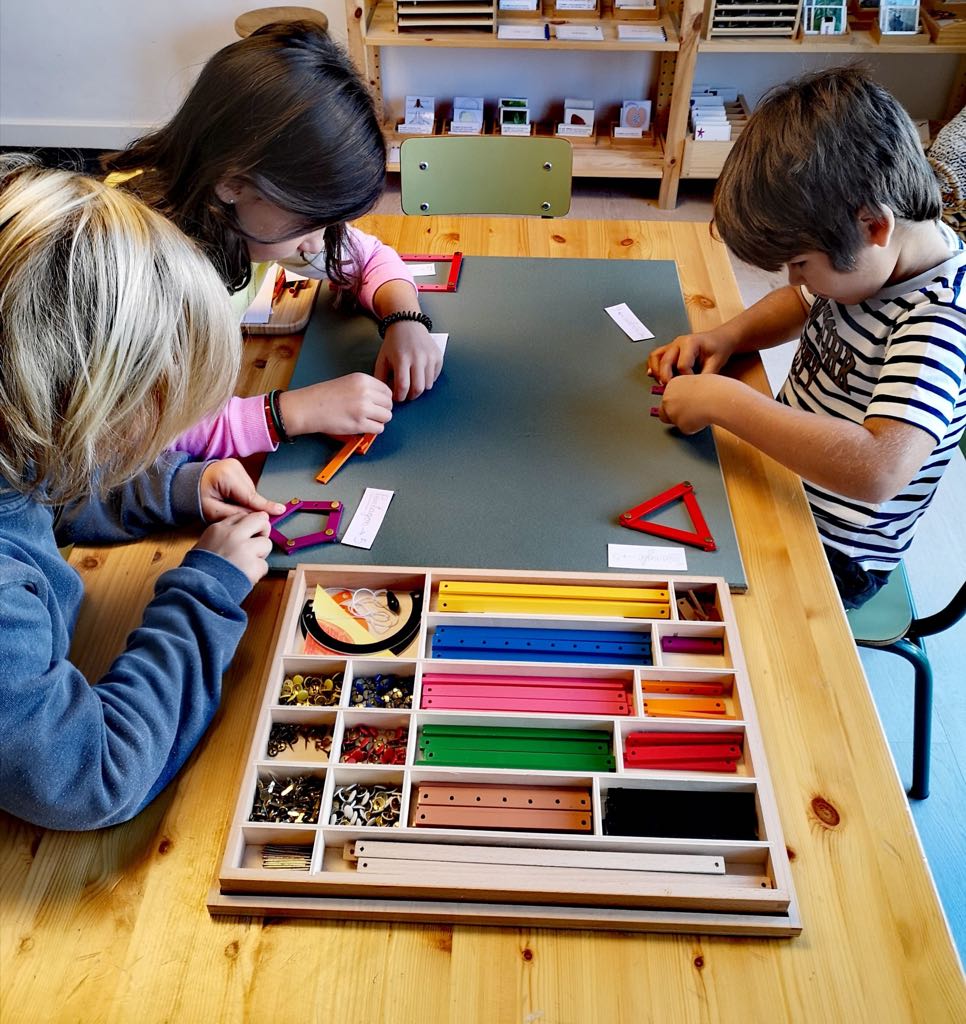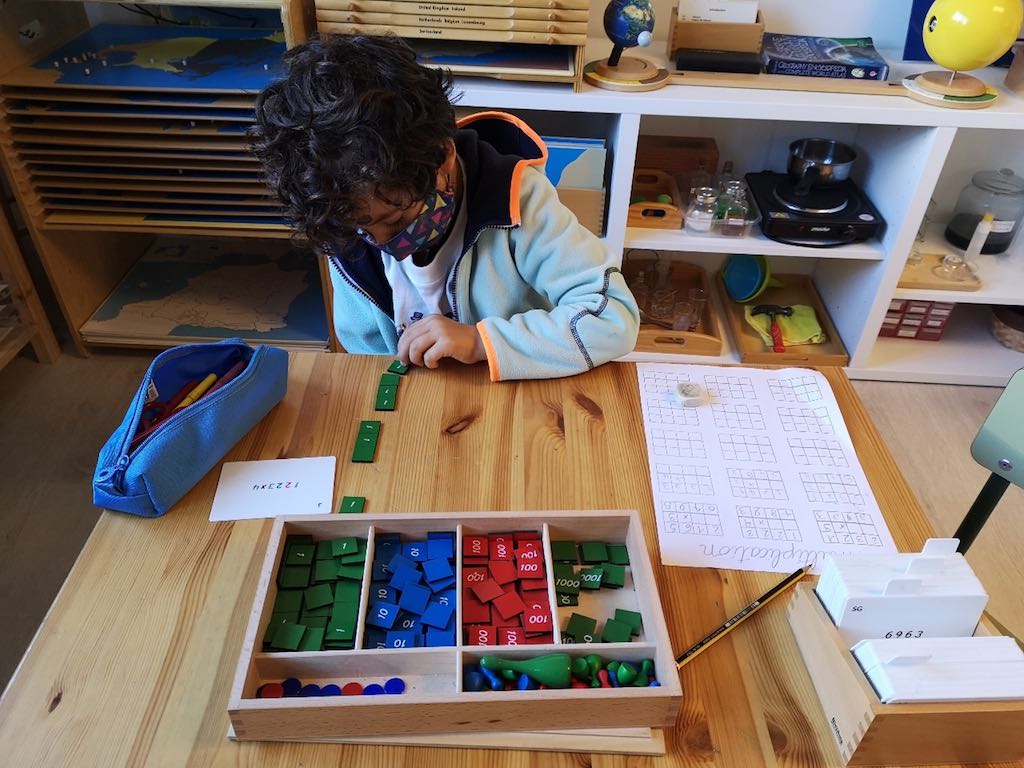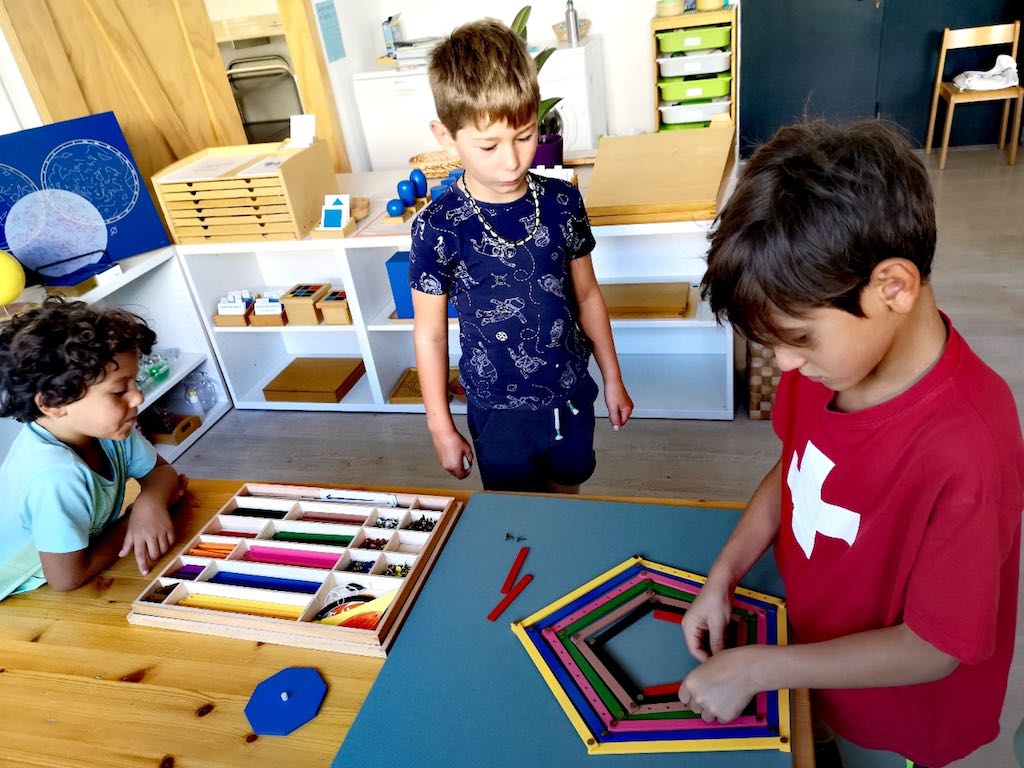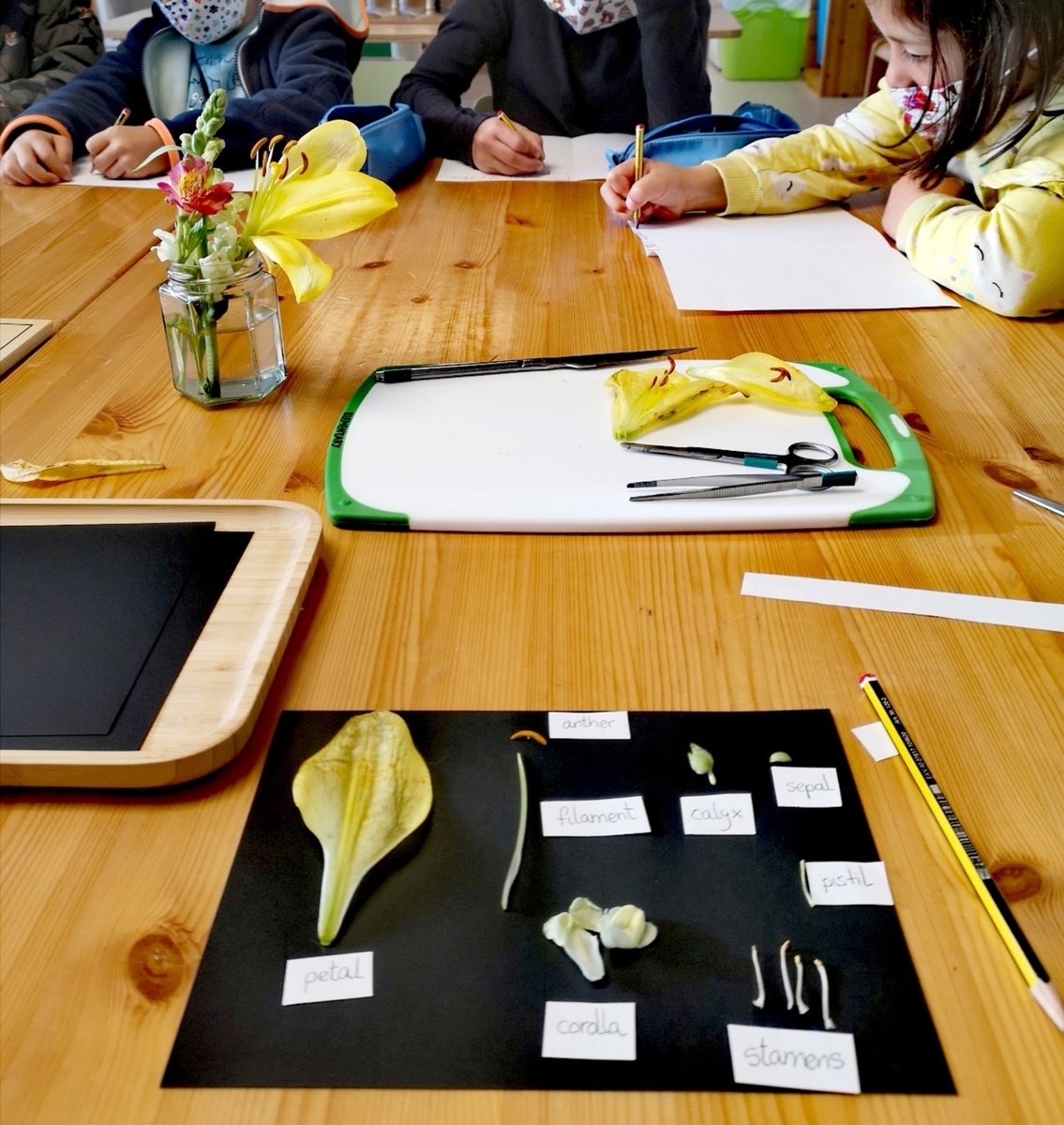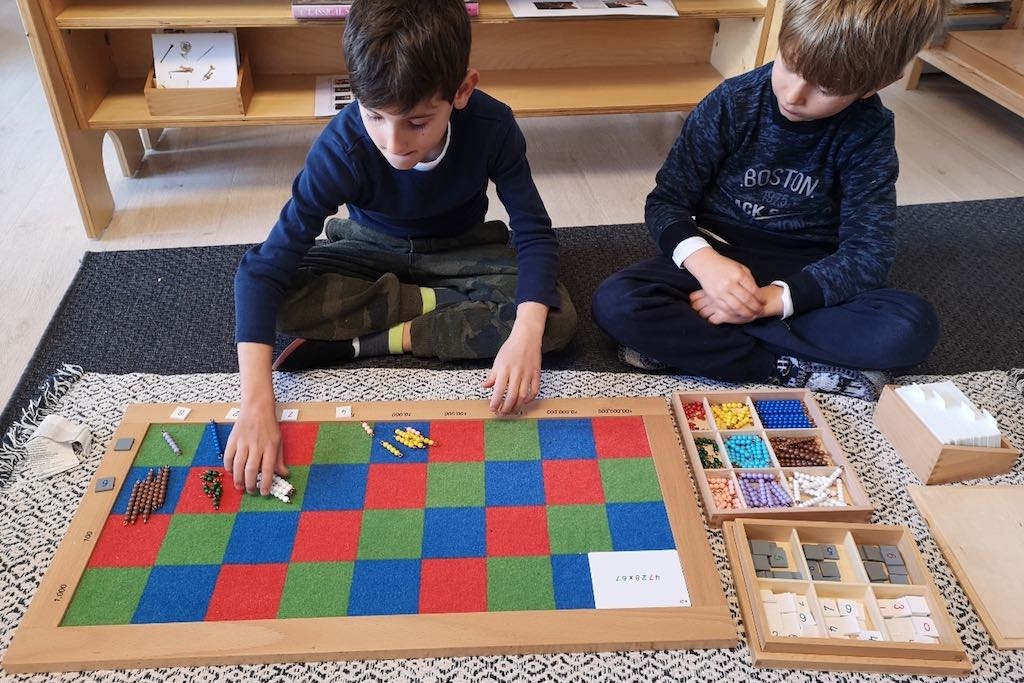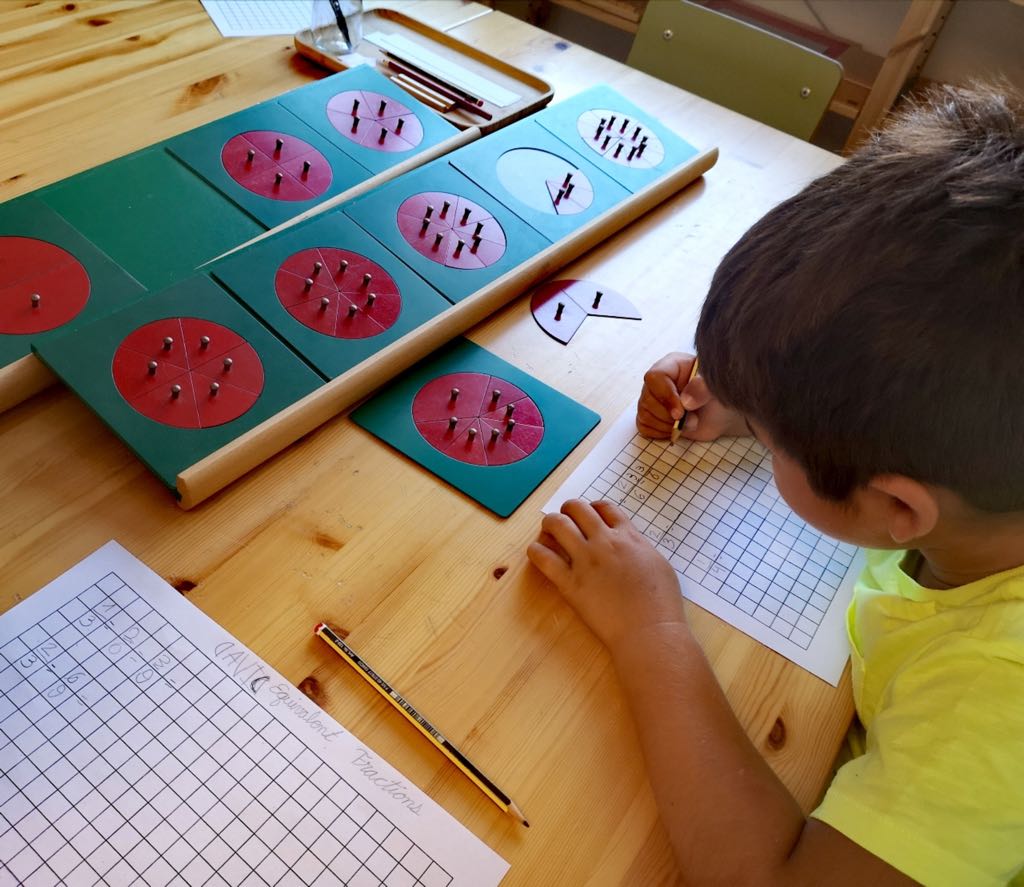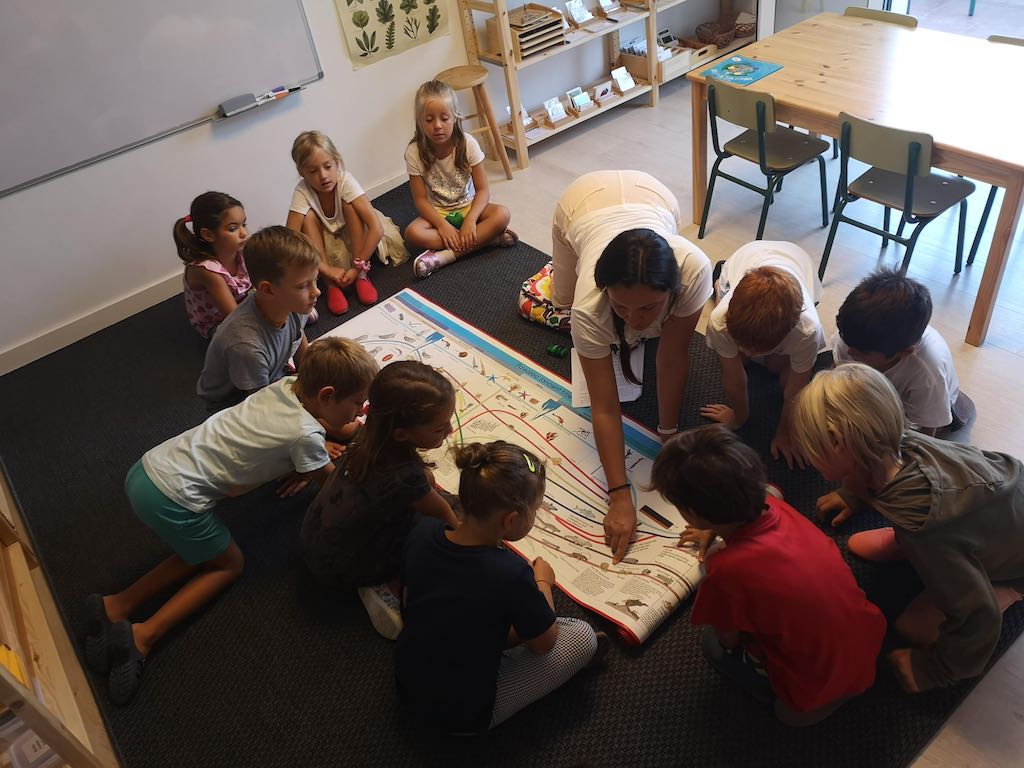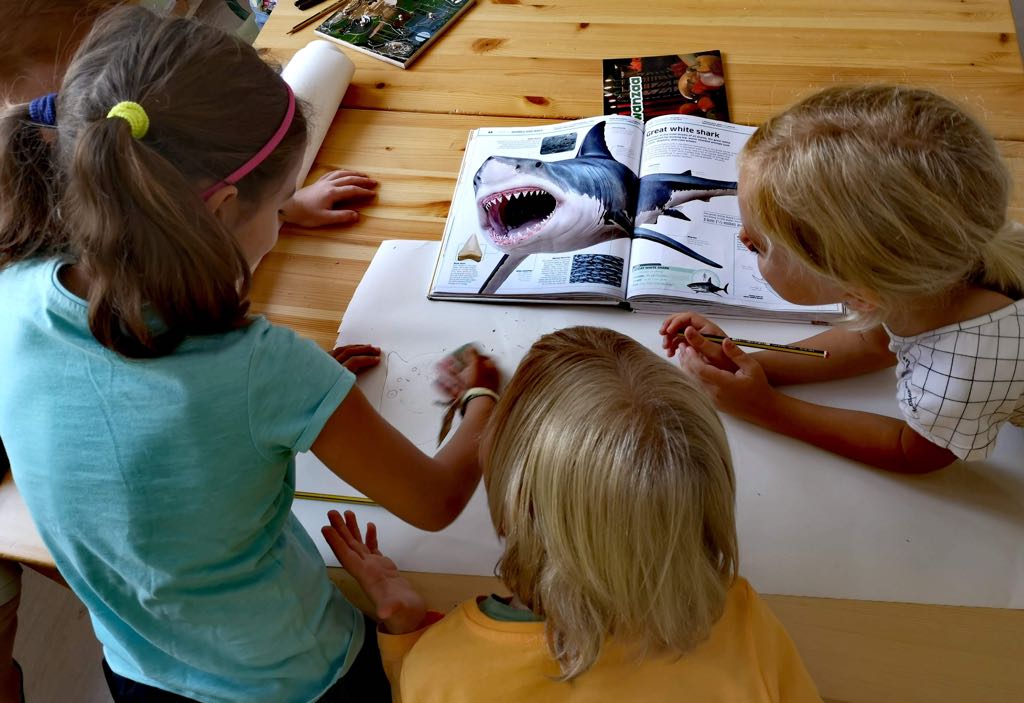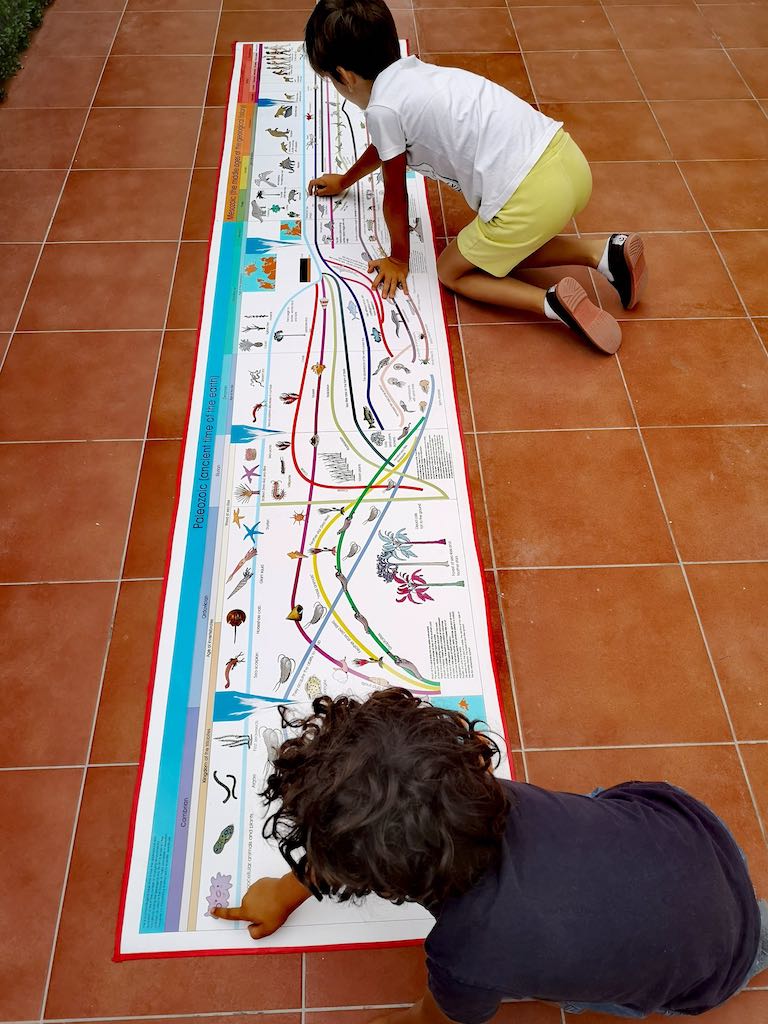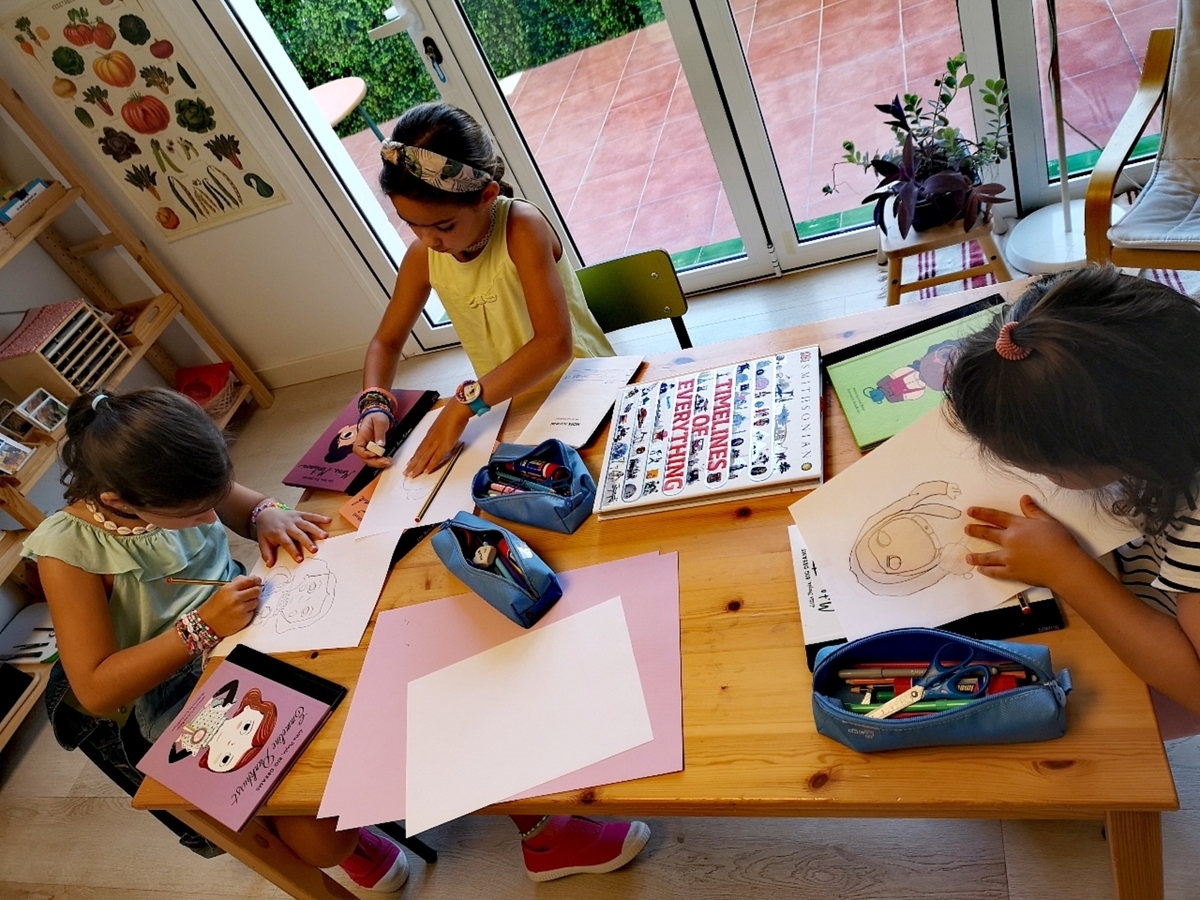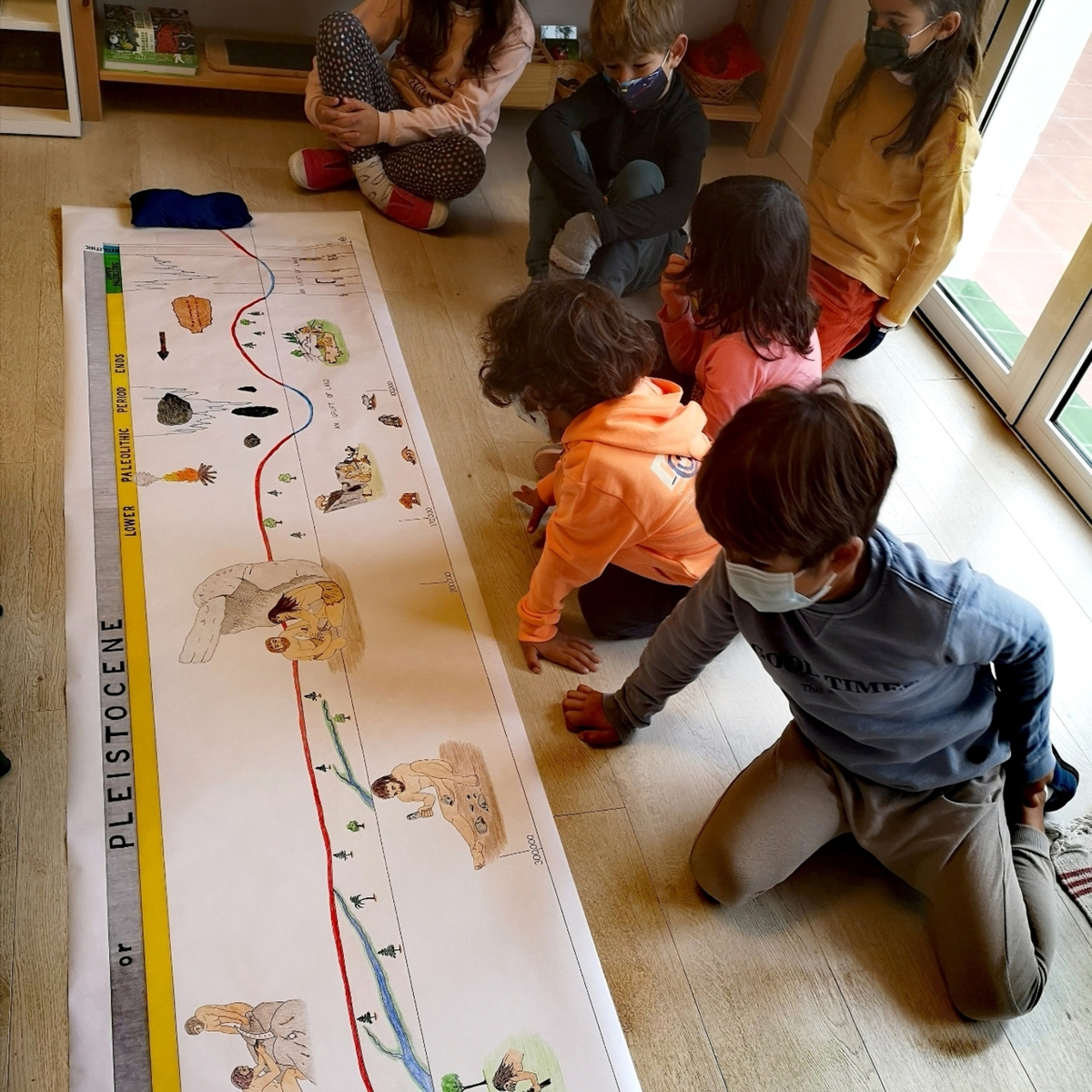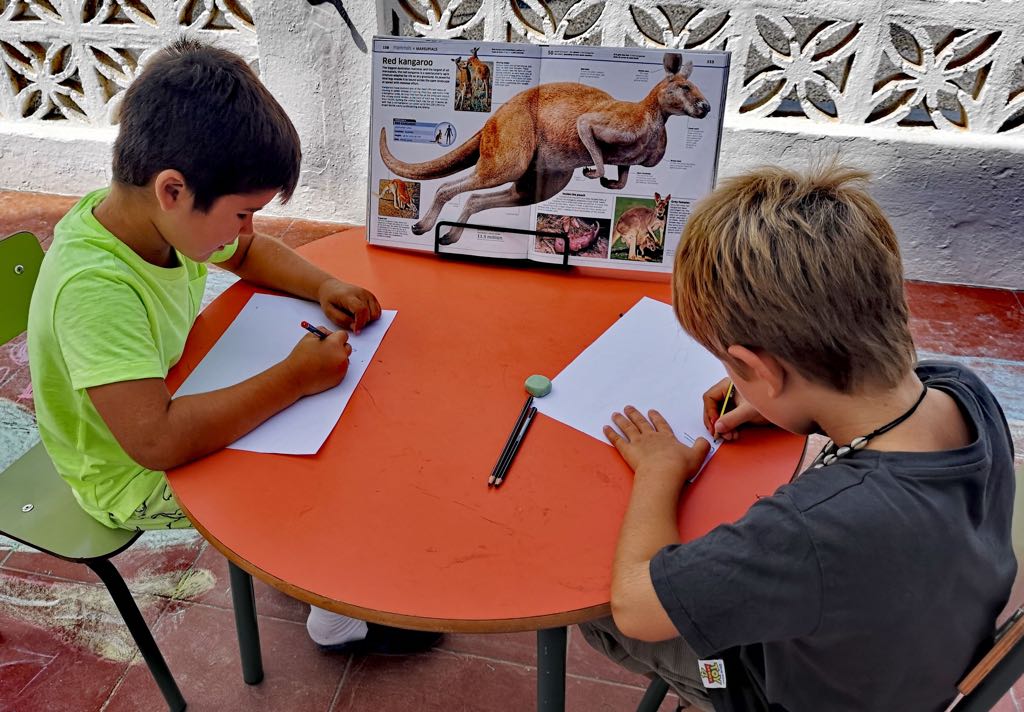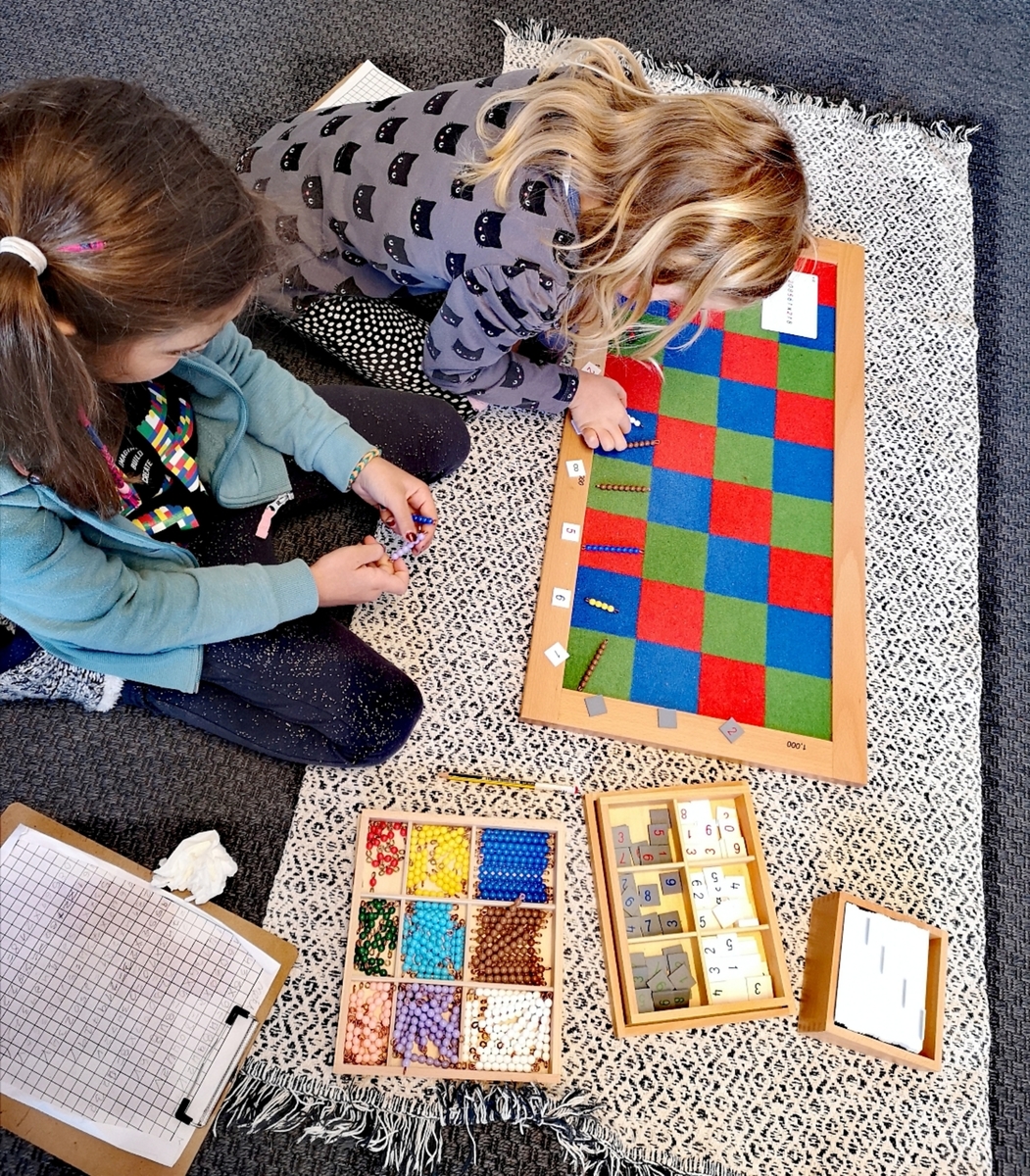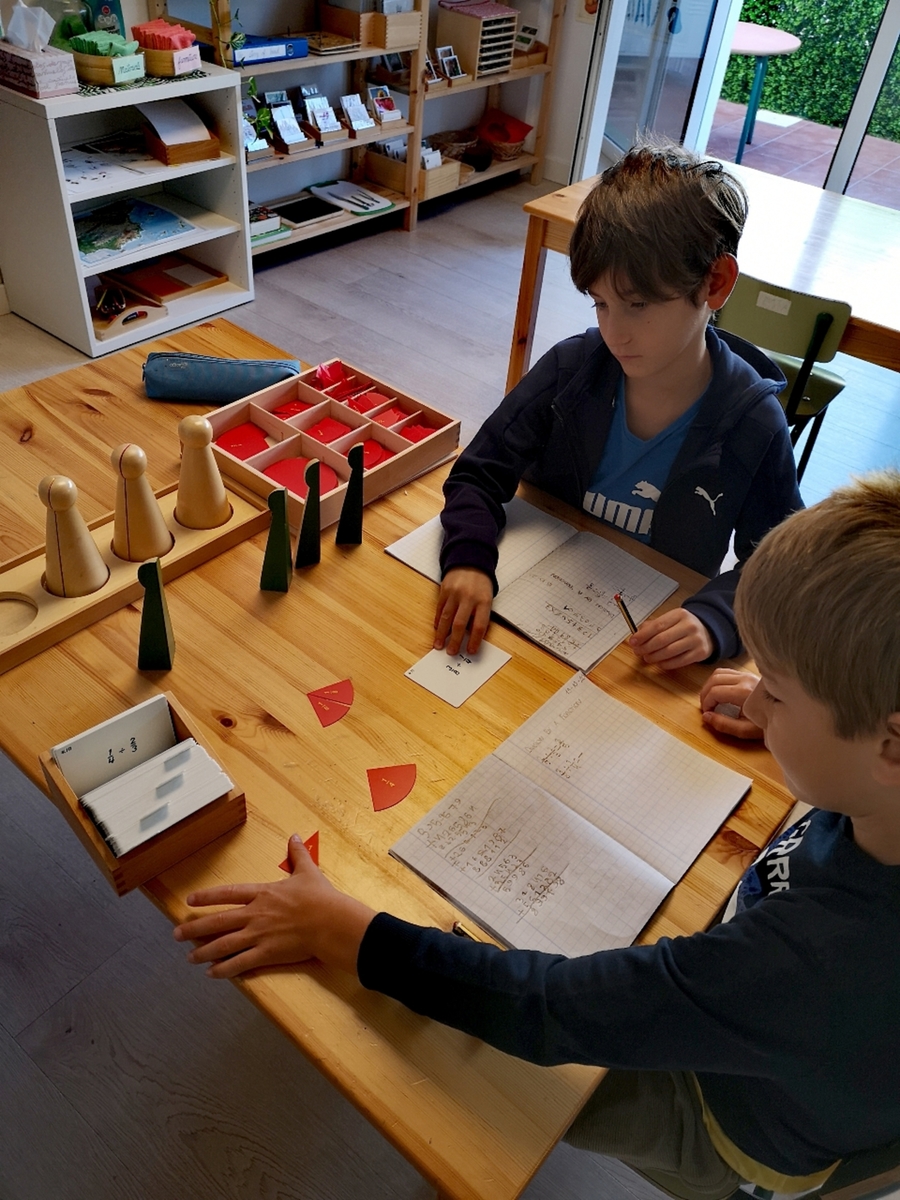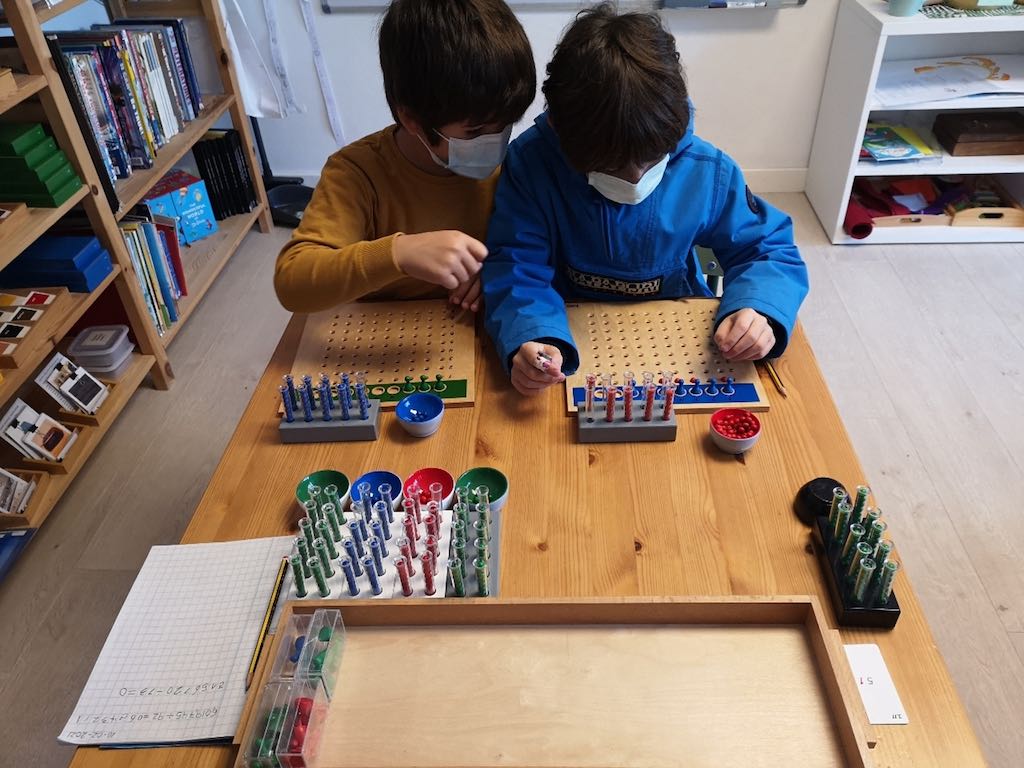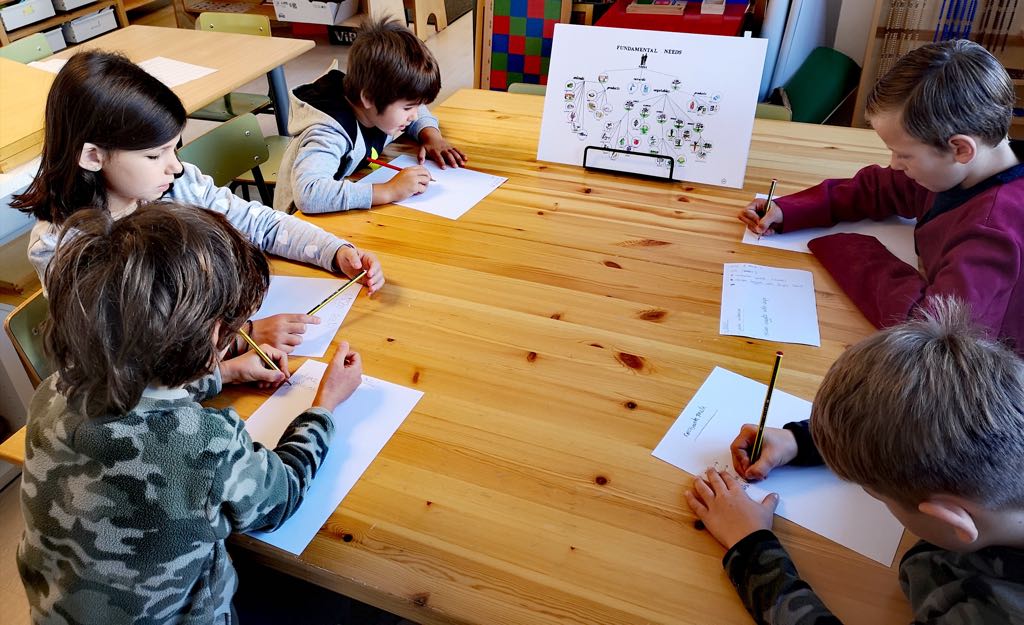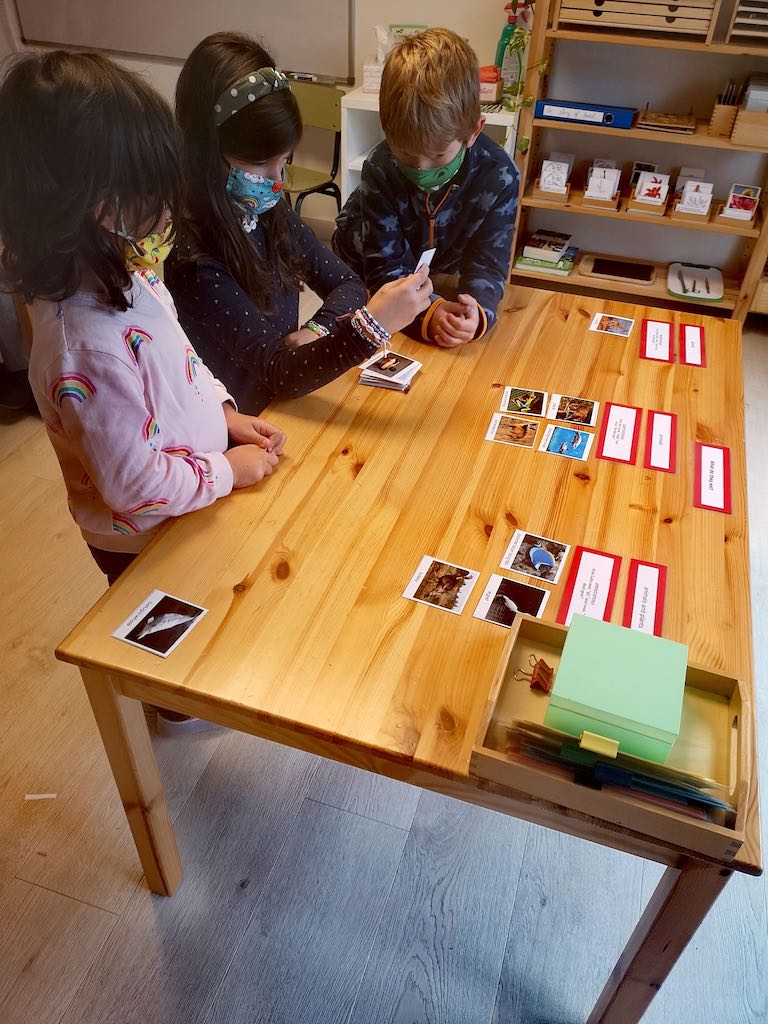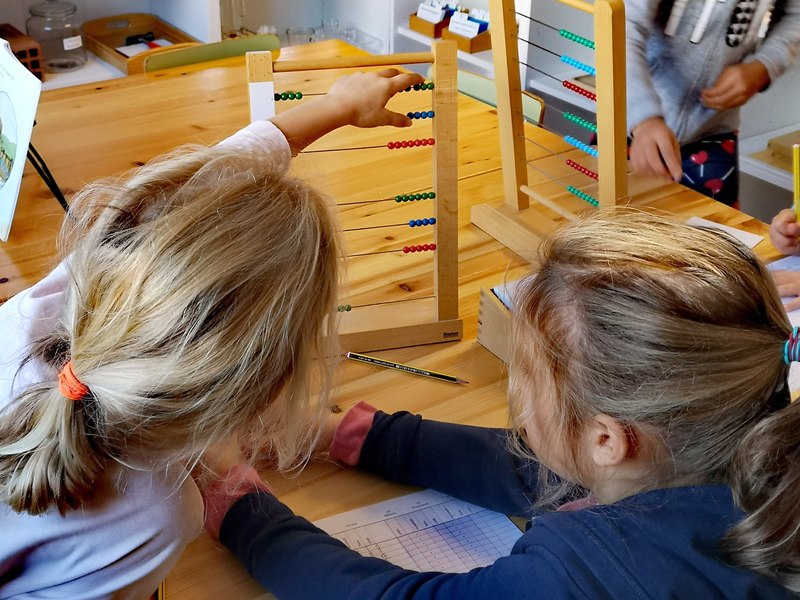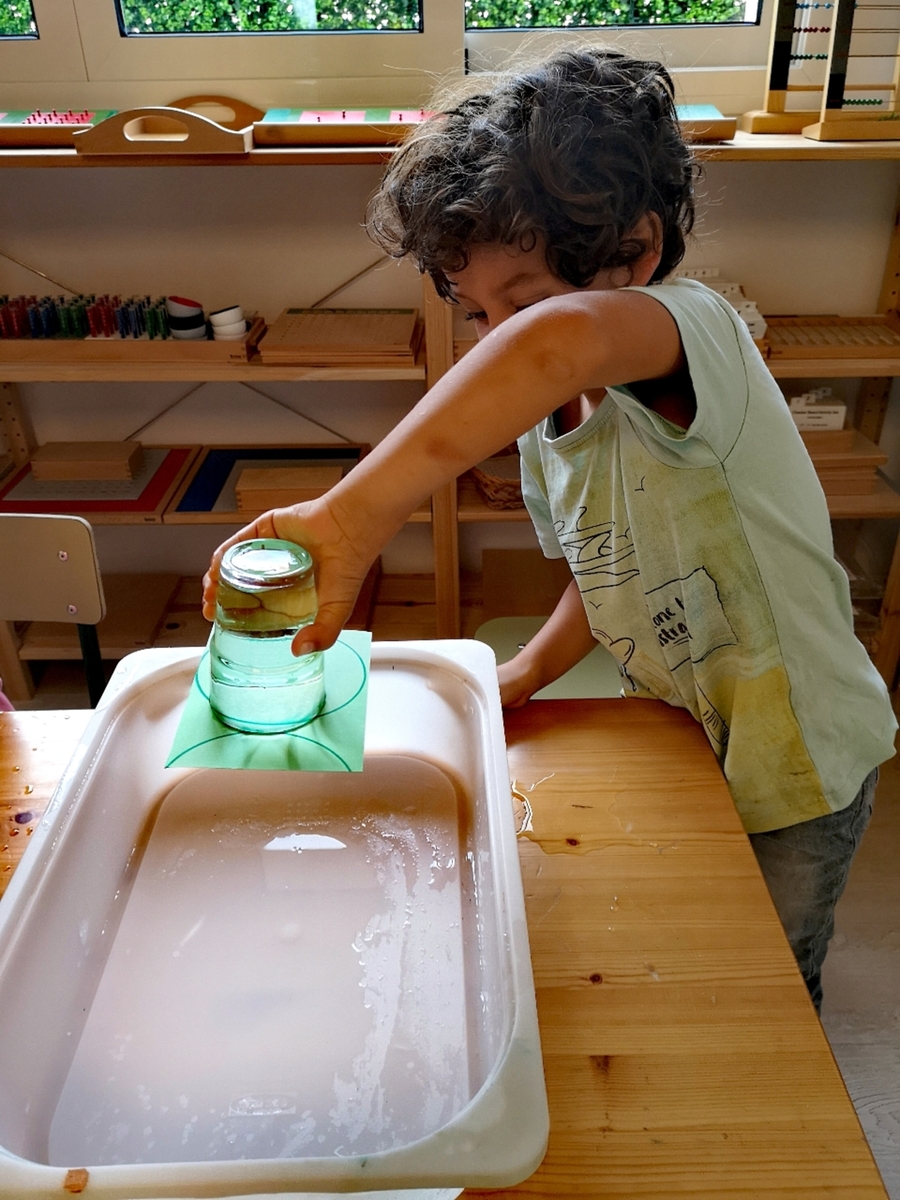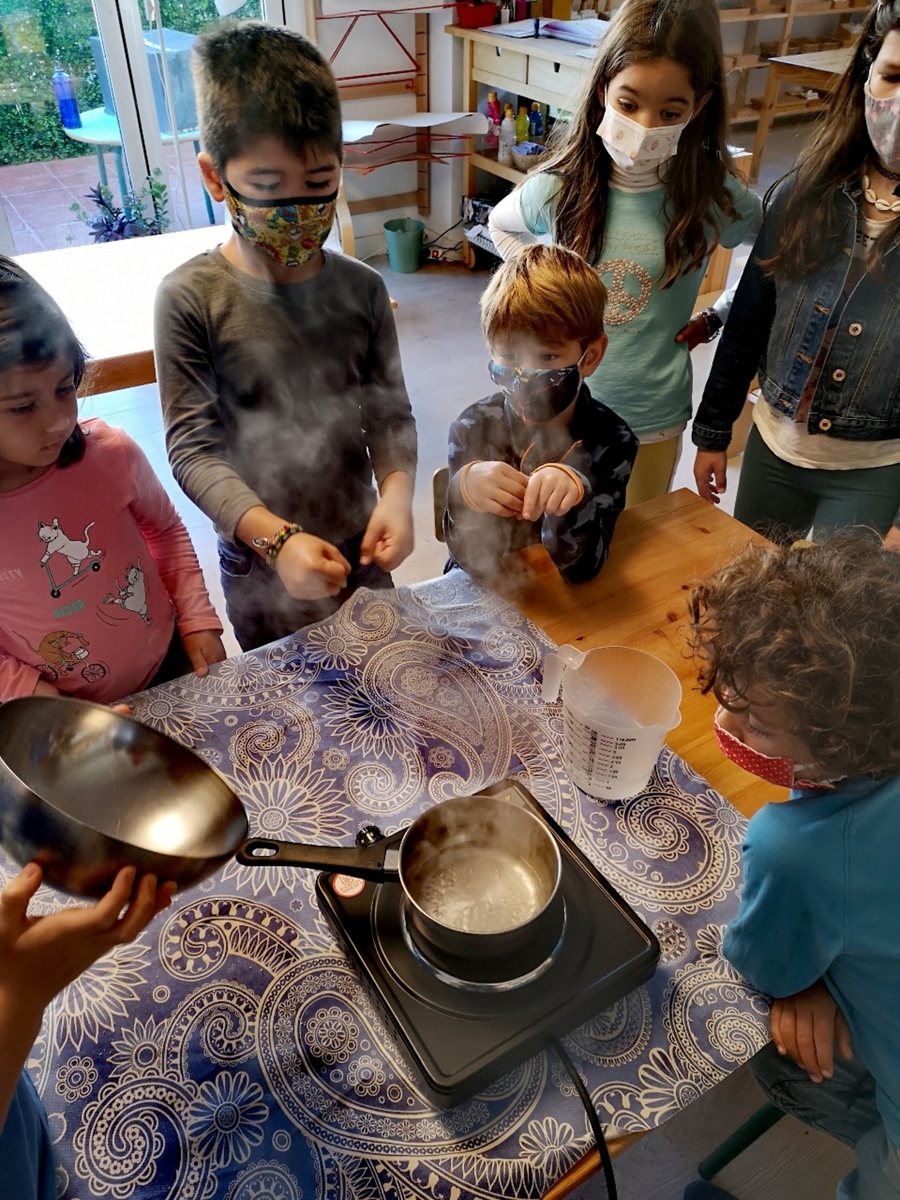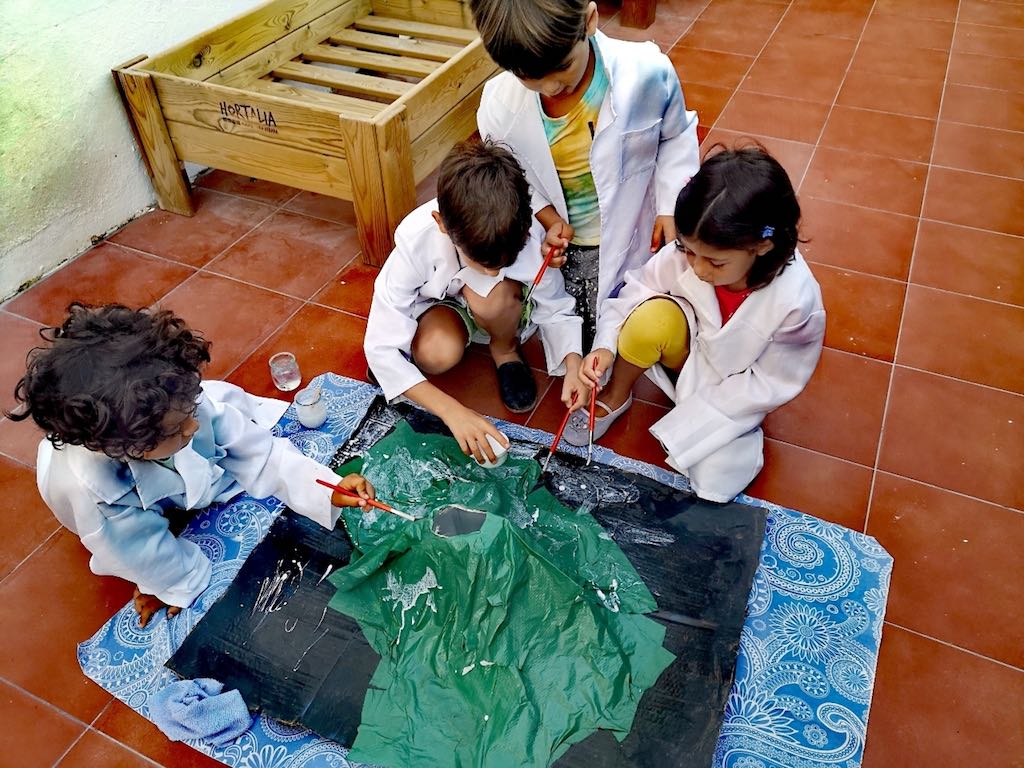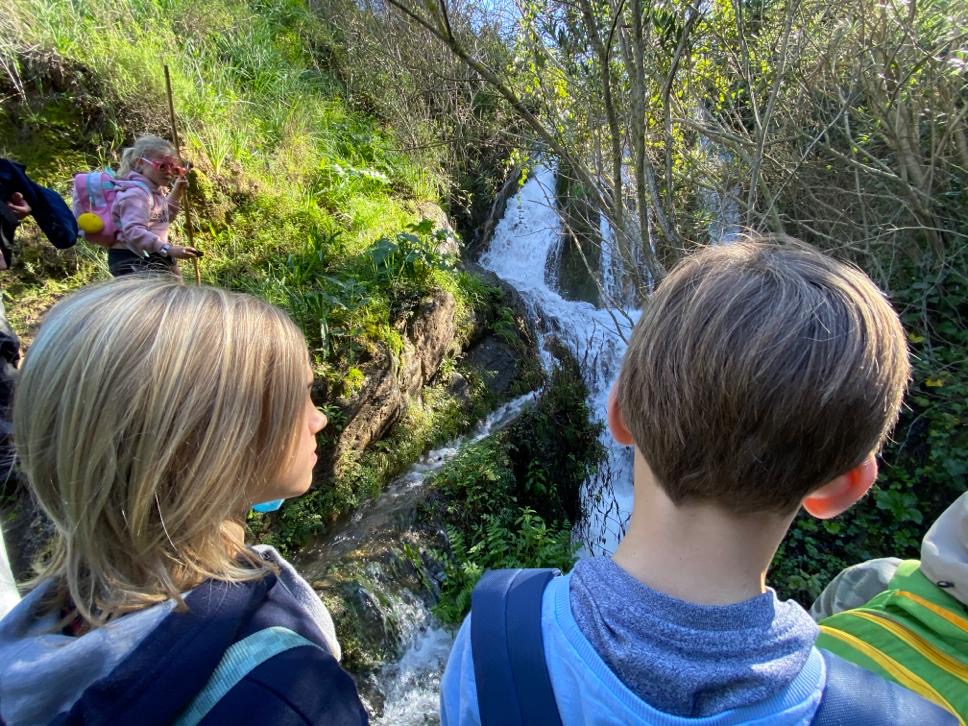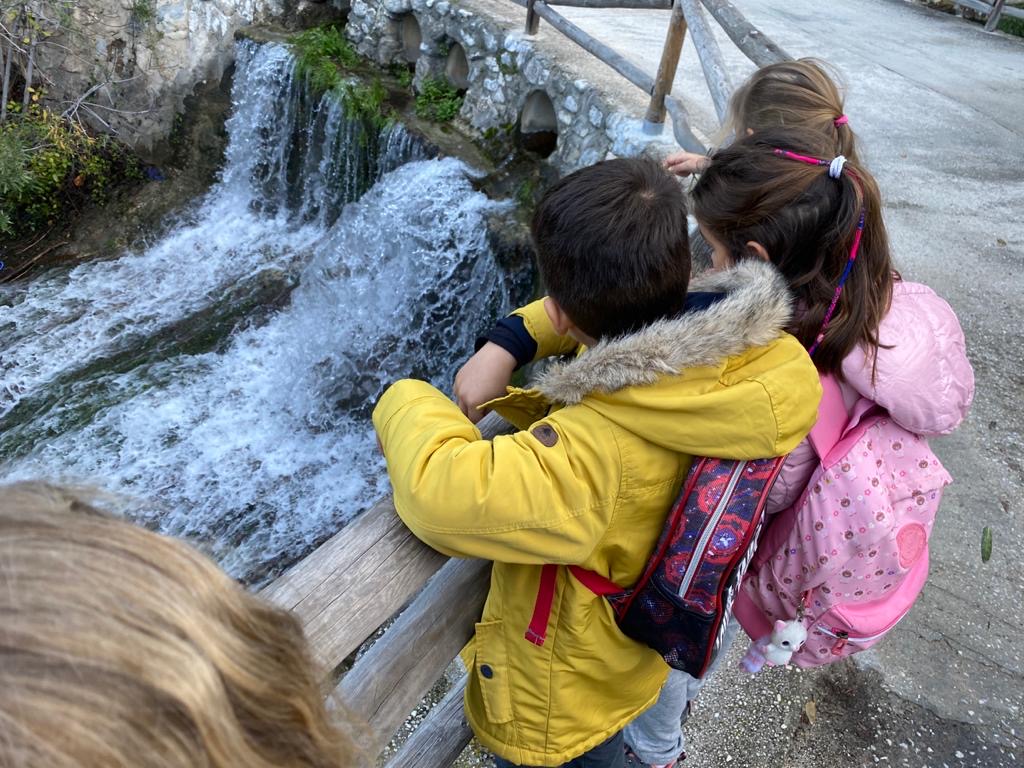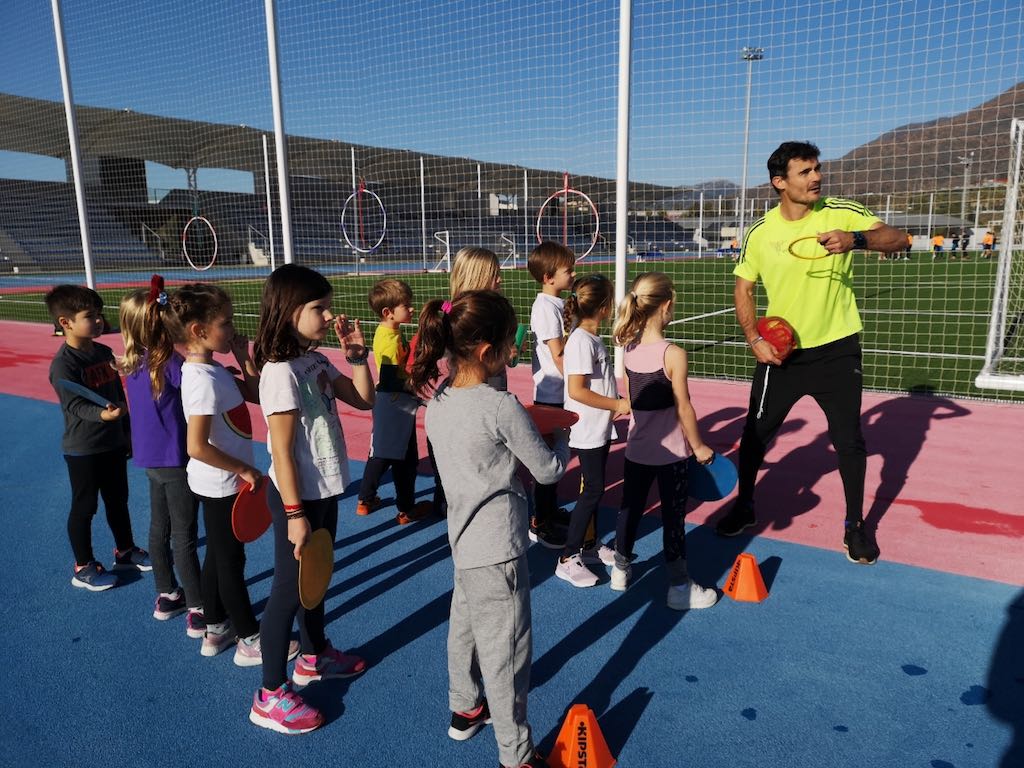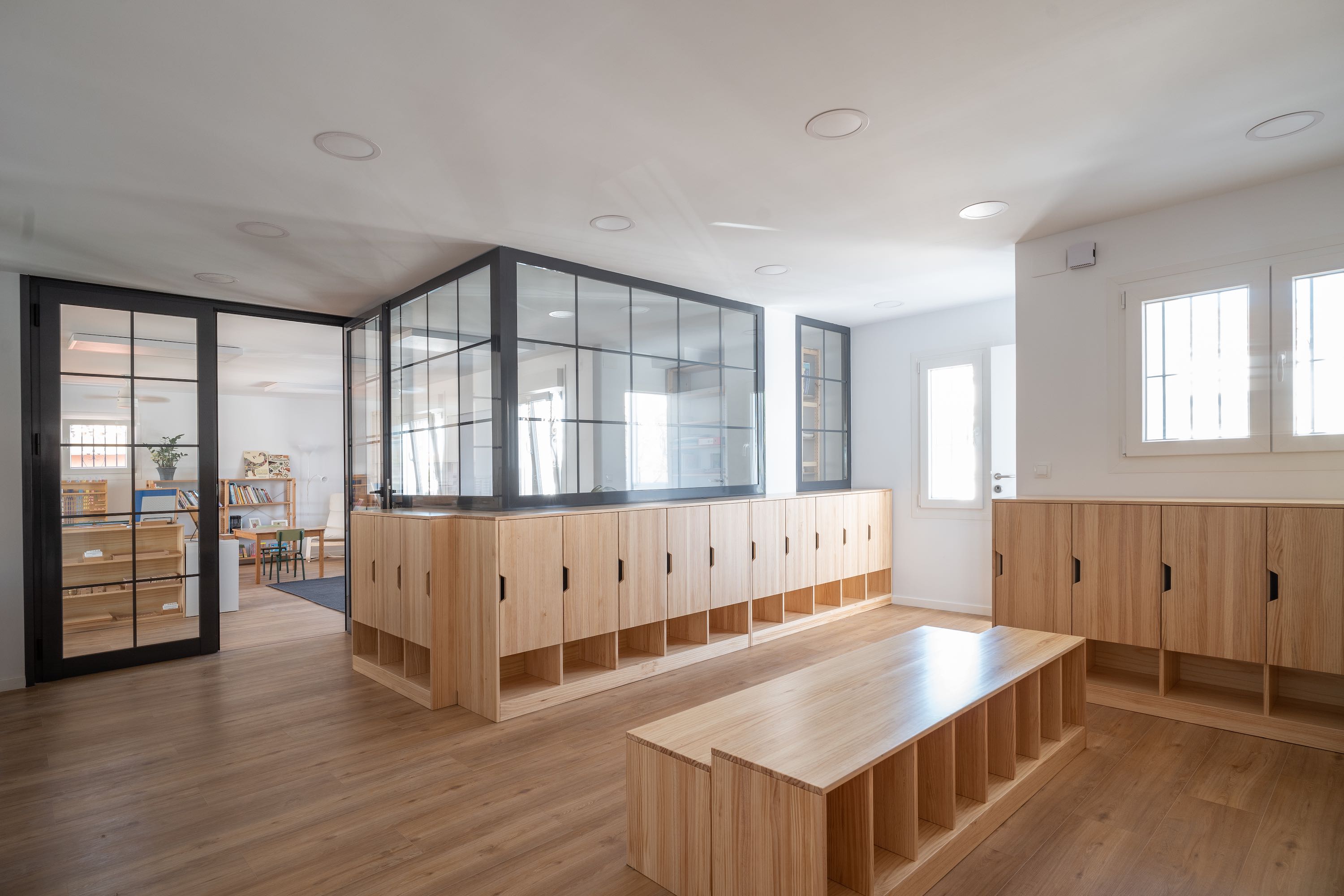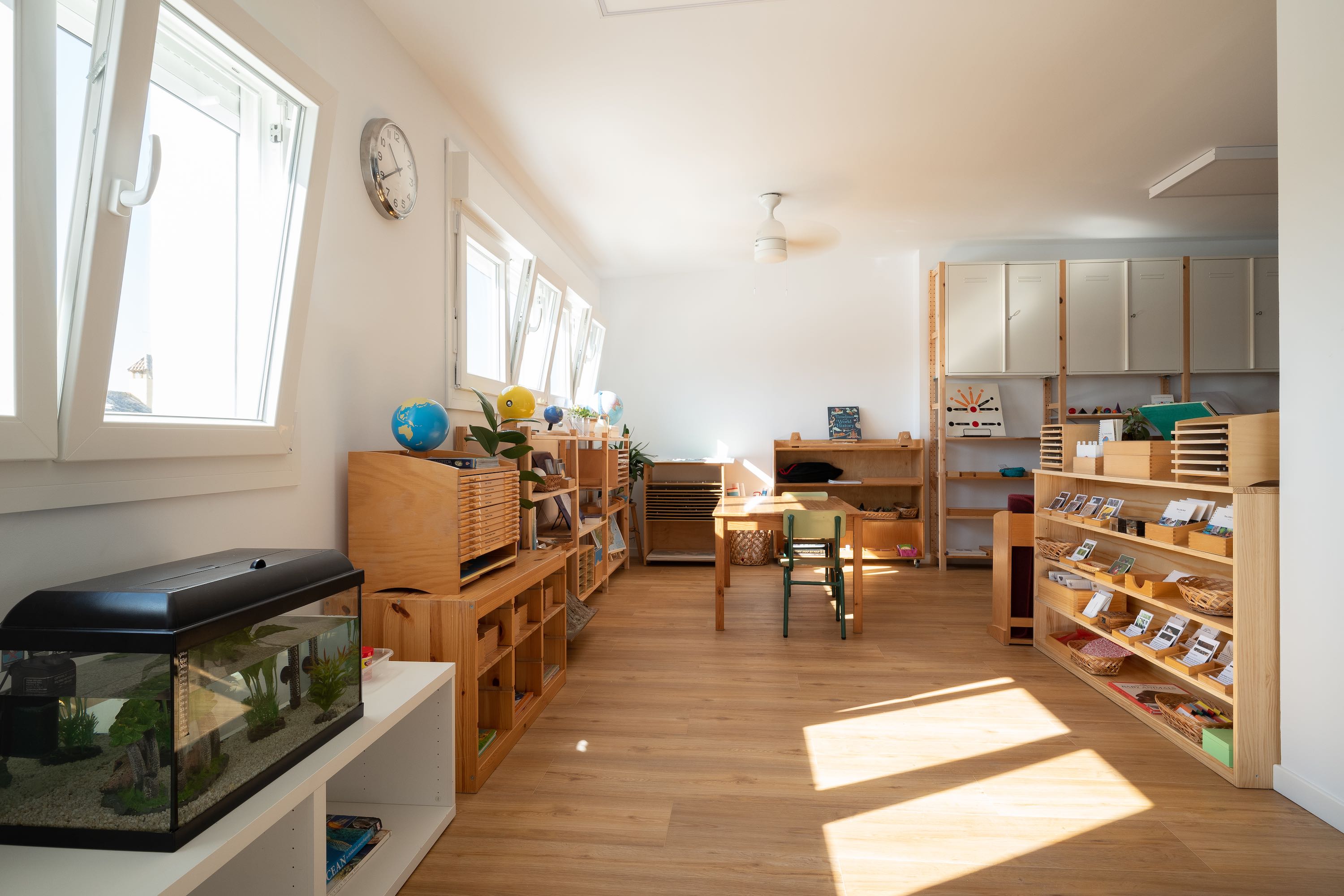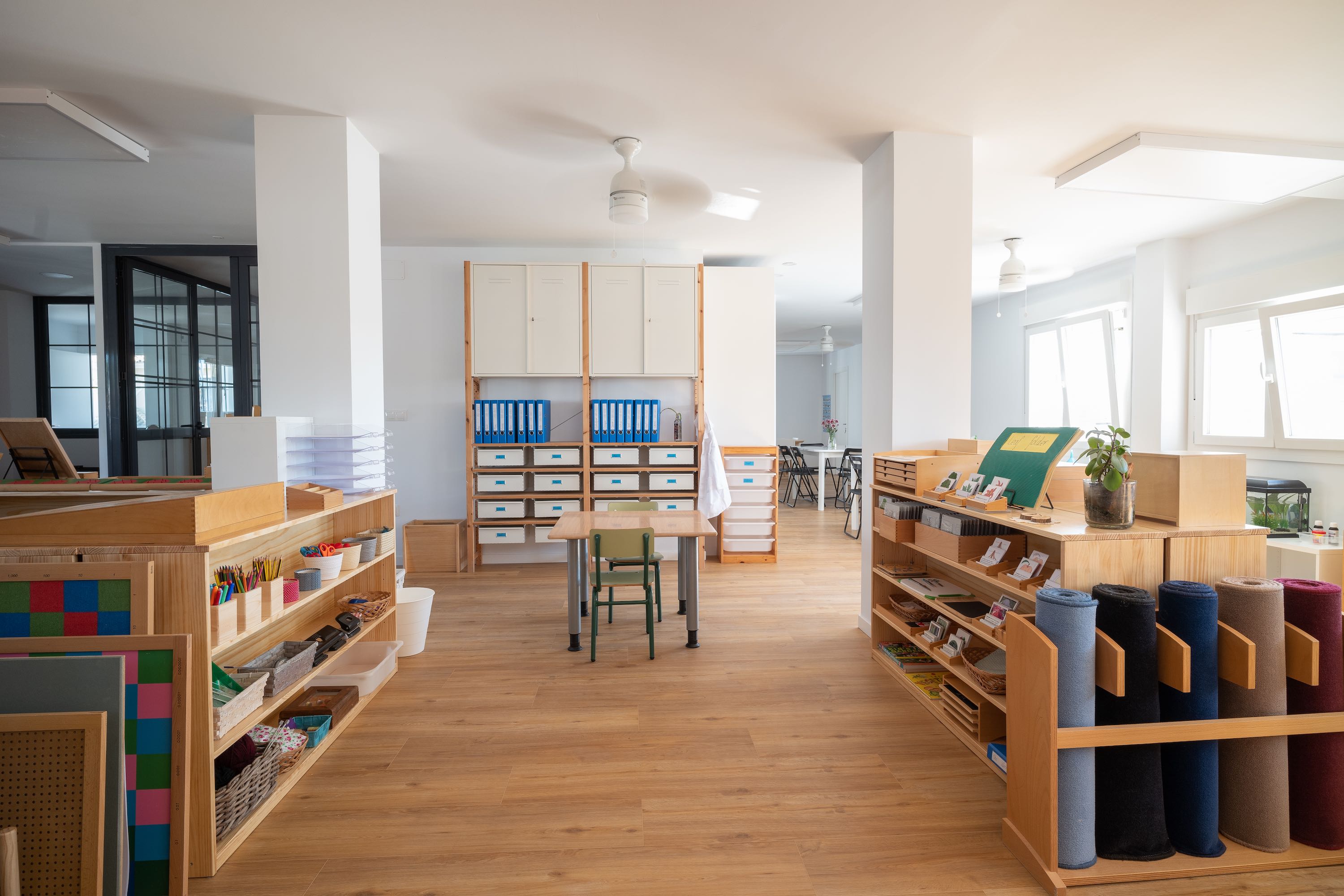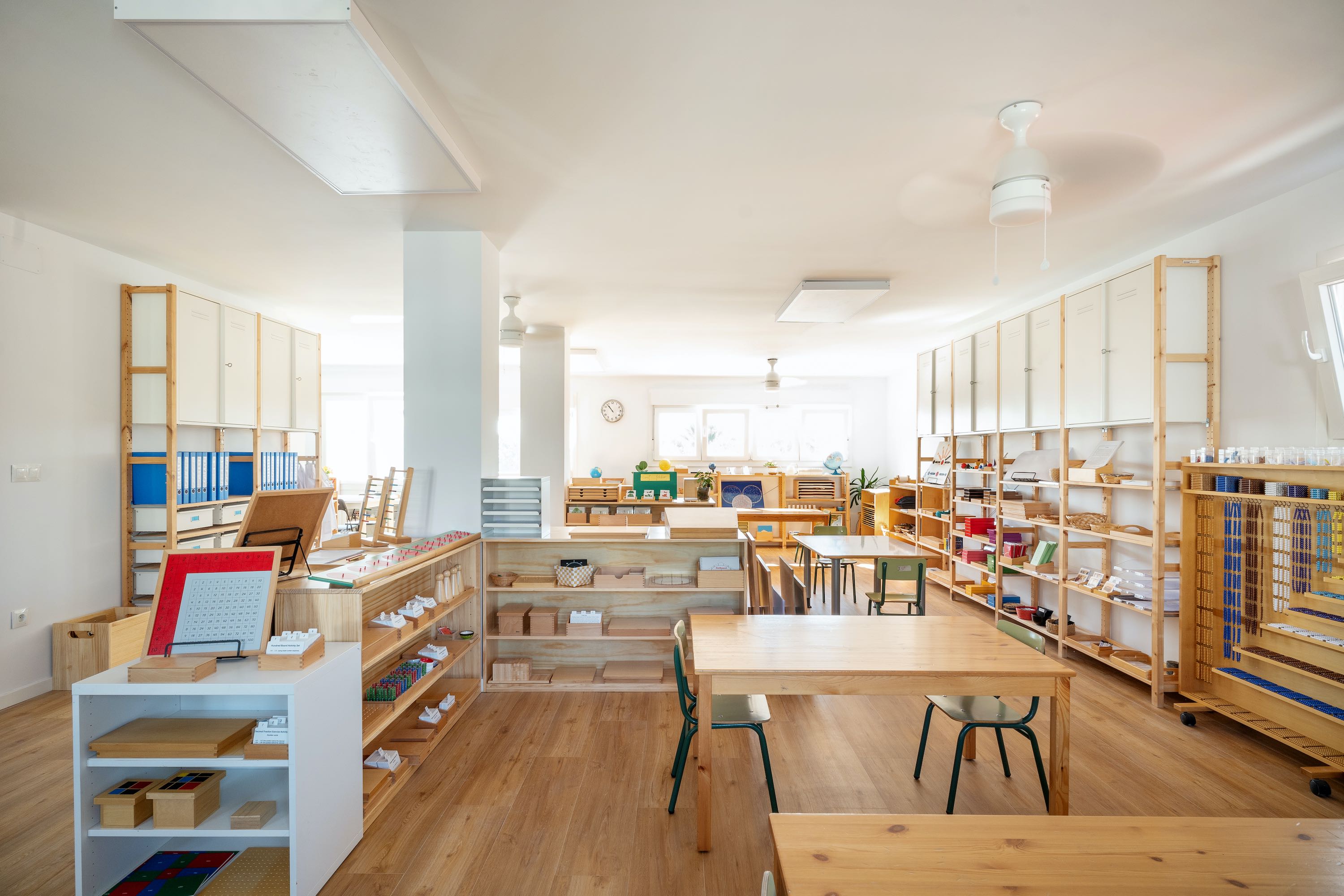
Montessori Elementary Program
Between the ages of 6 and 12.
"To stimulate life, leaving it free, however, to unfold itself--that is the first duty of the educator"
Learning How to Think.
The Montessori Elementary program, for children between the ages of six and twelve, is designed to promote critical thinking and encourage practicing the skills that will aid them in their life.
The child is entering a new period in his life; this imaginative, social, creative child needs a planned environment and expansive course of study to support their growth potential.
This experience will shape not only his knowledge and skills, but also his attitude about learning for the rest of his life.
The elementary “curriculum” is only limited by a child’s imagination.
The goal of a traditional curriculum is to delineate what a child is supposed to learn. In Montessori, we want your child to be able to learn everything! The starting point for all courses of study is the “Great Lessons”; these scientific stories are presented every year and give the students the “big picture” of cosmology, astronomy, earth science, geography, chemistry, physics, biology, history, anthropology, cultural and social studies, language, math, music, and art. Subsequent lessons offer the children keys for exploring these areas of human knowledge in more detail. As in the primary, the lessons are starting points for your child’s own activity. Meaningful learning happens when children are inspired by a lesson and begin to explore the subject and work on their own.
Children work collaboratively and cooperatively.
Elementary children have a strong drive to be social and to collaborate. For this reason, most of the lessons and follow-up projects in elementary are done in pairs or groups of children. Each day, your child will practice the social skills necessary to plan and carry out his projects: delegation and division of labor, sharing resources, making group decisions, taking responsibility for actions, and celebrating the success of peers. The Montessori teacher models and supports constructive and respectful problem solving. Learning how to work well with the different personalities and characteristics of other children in the classroom community is a significant life lesson with practical applications in the “real world” of high school, college and the professional workplace of the future.
Children explore their own interests while meeting age-appropriate standards.
The Montessori Elementary study both broadly and deeply, covering many subjects not attempted in traditional schools. The children often develop expertise in a subject that is especially interesting to them. Because there is not a rigid schedule or prescribed curriculum that the whole class must follow, your child can focus intensely on her self-chosen work, with minimal interruption. At the same time, she will collaborate with the teacher to ensure that the basic skills for each grade are mastered. A version of the public school standards is available to the class, and the teacher facilitates your child’s use of these standards as a guide to her work choices. To support her individualized plan of study, the teacher meets with her regularly to plan and assess her progress.
Enrolment options
Children in this environment attend 5 days a week.
| Program | Hours |
|---|---|
| Full day | 8:30 am - 3:15 pm |
